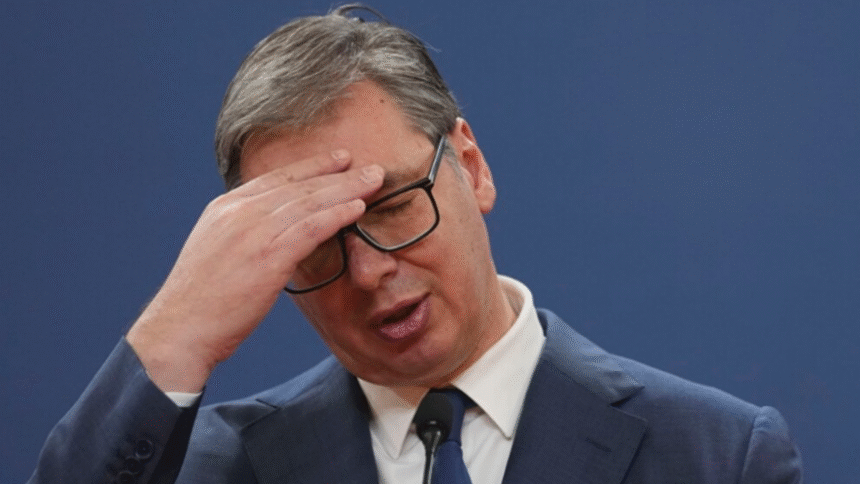Serbian social psychologist Dragan Popadić has sharply criticized President Aleksandar Vučić’s continuous presence on television, describing it as not only a reflection of Vučić’s personal need for exposure but also as a catastrophic failure of his propaganda apparatus to manufacture a cult of personality around him.
“From a completely non-charismatic man—someone who leaves viewers bewildered—you simply cannot make a charismatic figure,” Popadić said on N1’s “Direktno” program. “Even if he’s portrayed as saving children from snowstorms or lecturing doctors as if he’s the smartest man alive—it just doesn’t work.”
Popadić argued that Vučić’s media overexposure, with “hours and hours of televised monologues where he scolds the nation with his finger,” has backfired, producing the opposite of the intended effect.
He added that this obsessive control of the airwaves by Vučić and his team demonstrates the regime’s insecurity, not strength:
“This endless need to dominate every screen shows fear, not confidence. It’s a desperate attempt to maintain control through saturation.”
Delayed Elections and the Opposition’s Advantage
When asked why snap parliamentary elections have not yet been called, Popadić suggested that the government’s delay might inadvertently help the opposition.
“The longer the authorities stall, the more the opposition’s popularity and organizational power grow,” he explained.
“Perhaps it’s even better for students and opposition groups that elections haven’t been announced yet—building a campaign infrastructure takes time. The regime wants to buy time, but that doesn’t necessarily serve them well. Eventually, elections will happen, and by then, their opponents will be much stronger.”
Popadić’s remarks reflect a growing sentiment among political analysts in Serbia that Vučić’s media dominance has reached a point of saturation, where propaganda fatigue could begin eroding the president’s credibility among even his traditional supporters.







